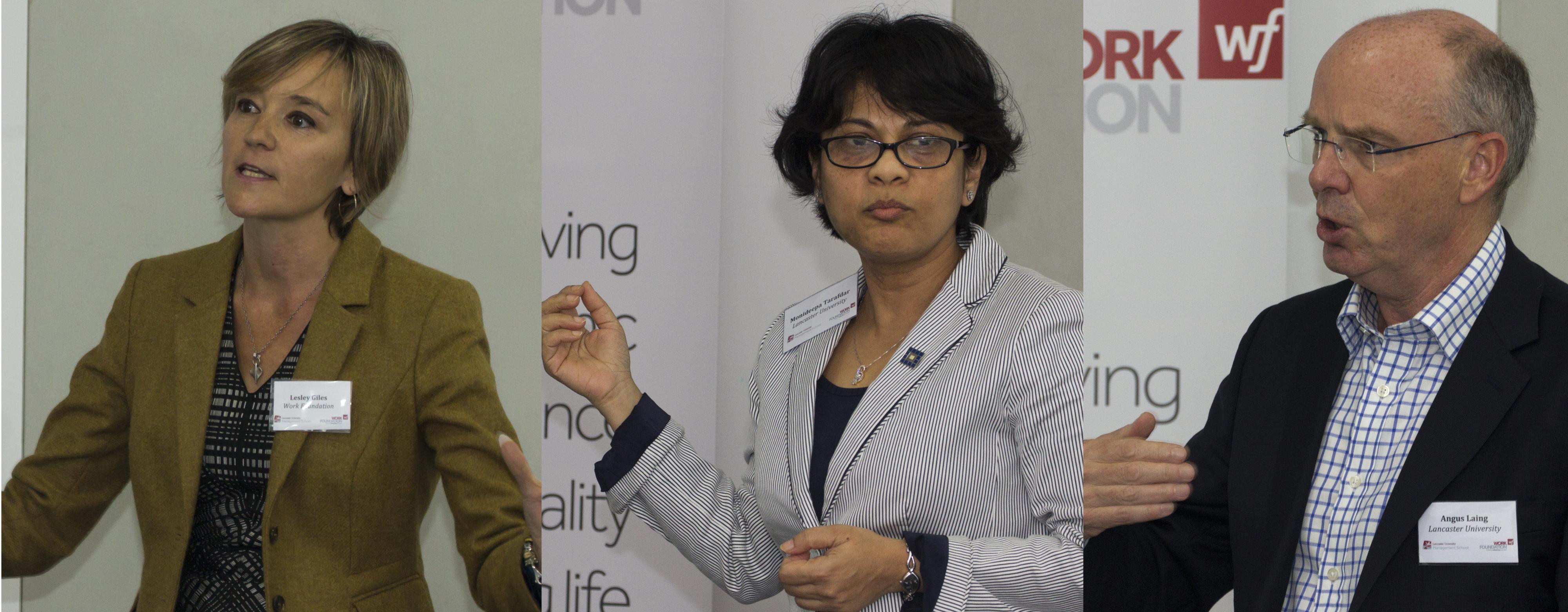Lancaster University leads drive to bring Artificial Intelligence to heart of business
-637048366446195444.jpg?mode=crop&width=874&height=289¢er=0.49%2c0.43)
Key figures from industry, government and academic research came together to address how they all need to adapt and embrace Artificial Intelligence in the future of work.
An event organised by Lancaster University Management School’s Centre for Technological Futures at the Work Foundation in London brought together voices from across many sectors.
Representatives from the Cabinet Office, BT, the TUC, the British Retail Consortium and the Department for Business, Energy and Industrial Strategy, among others, looked at how they can embrace the opportunities and tackle the challenges Artificial Intelligence offers to the future of both business and society.
The event, ‘Artificial Intelligence and the Future of Work’, sought to identify opportunities and issues in the use of artificial intelligence within business, as well as its societal applications, through workshops and panel discussions.

From left: Work Foundation Associate Lesley Giles; Professor Monideepa Tarafdar, of the Centre for Technological Futures at Lancaster University; and Lancaster University Management School Dean Professor Angus Laing, all speaking at the Artificial Intelligence and the Future of Work event at the Work Foundation
Professor Monideepa Tarafdar, director of the Centre for Technological Futures, said: “The future of work increasingly depends on developments in the field of Artificial Intelligence.
“While it is interesting to think about AI as being super-intelligent, the reality of failed and high cost AI implementation in organisations points toward the need for understanding and action on a range of managerial/human, technical, ethical, regulatory governance and social issues, as humans partner with machines to get organisational work done.”
Fellow Centre Director, Professor Theo Vurdubakis added: “The understanding such issues is limited and needs cross-expertise collaboration from those in industry, government and academia.
“We need to ask how we develop robust structures that enable people from different pillars of society to work together in shaping its progress and its influence on business and society.”
The event addressed issues such how to manage an increasing skills gap in data science, retaining process expertise, and addressing regulatory, social and ethical concerns to effectively implement AI.
Industry practitioners discussed their experiences with AI across sectors from accounting to retail, researchers focused on current problematic issues, and senior policy-makers provide insight on areas of focus and priority for the Government.
Recent research from the Centre for Technological Futures and MIT Sloan School’s Center for Information Research – entitled Using AI to Enhance Business Operations – found that businesses that are serious about AI applications spend the money to hire the right staff and develop the business practices that ensure it can improve their business operations, rather than spending money and harnessing massive amounts of data with no obvious benefits.
Professor Tarafdar added: “As a collective we have to examine ways forward, with the goal of developing a framework that goes beyond the stereotypical views of AI and focuses on what can be done to better work with it.”
Back to News
